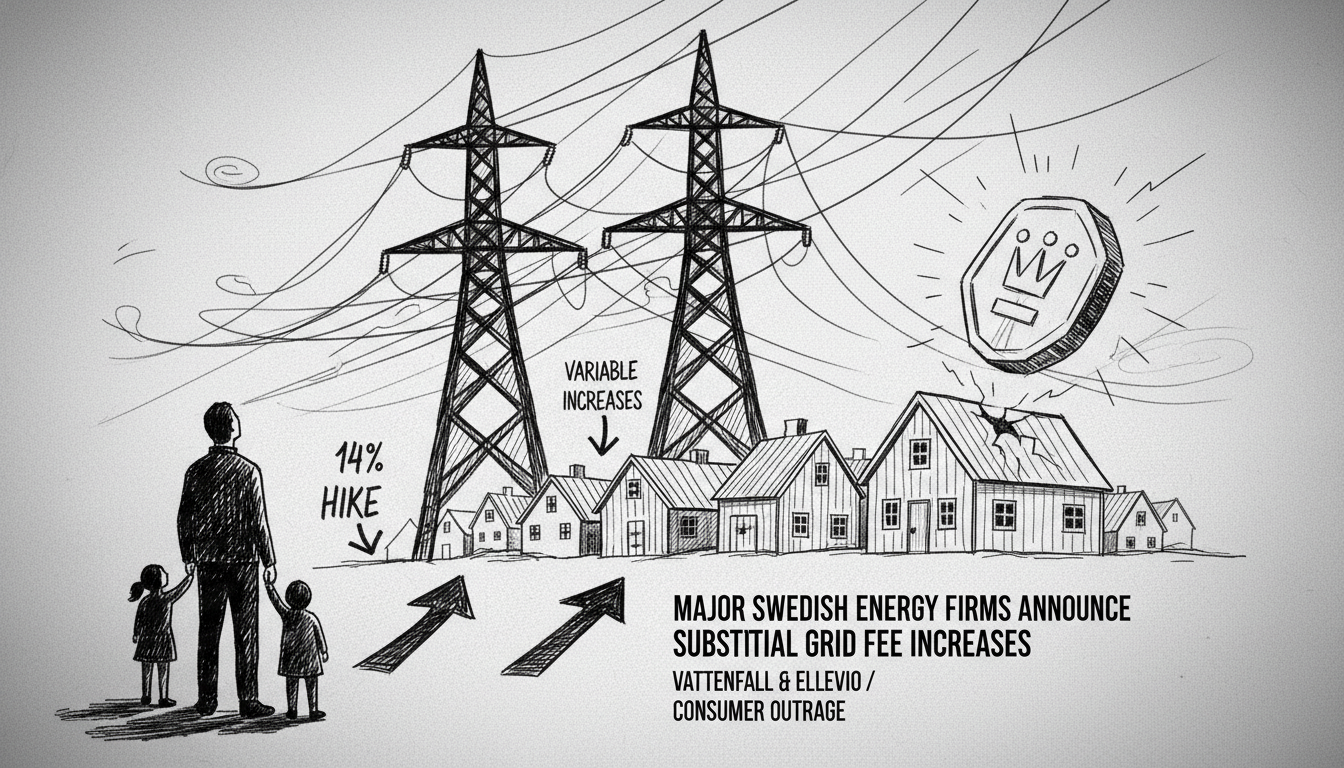Sweden's leading energy providers Vattenfall and Ellevio will implement significant electricity grid fee hikes starting in the new year. Vattenfall confirmed a 14 percent increase for customers. This translates to approximately 130 kronor monthly for electrically heated villas. Apartment dwellers will pay about 35 kronor more each month.
Ellevio's increases vary by customer type and billing structure. Villa collective customers face roughly 10 percent higher costs. The fixed fee rises by eight percent while variable charges increase twelve percent. Apartment customers encounter more complex changes due to system restructuring. Many will see nine percent fixed fee increases.
Company executives cite substantial infrastructure investments as the primary driver. Ellevio's communications director Jesper Liveröd emphasized the average increase across all customers remains around five percent. Both companies maintain these investments are essential for grid reliability and future capacity.
Consumer advocates strongly criticize the timing and scale of these increases. Håkan Larsson of Villaägarna consumer organization expressed deep concern. He questioned the rationale behind repeated above-inflation rate adjustments. Swedish households already face mounting energy costs throughout the Nordic region.
These developments occur against Sweden's ambitious climate transition goals. The country continues investing heavily in renewable energy infrastructure. Grid modernization represents a critical component of this national strategy. Energy companies balance infrastructure needs against consumer affordability concerns.
International observers watch Swedish energy policy closely. The Nordic model often serves as a benchmark for sustainable development. Recent fee increases highlight the practical challenges of green transition financing. Swedish households bear direct costs through monthly utility bills.
Energy sector analysts note similar patterns across European markets. Infrastructure aging and climate requirements drive investment needs worldwide. The Swedish case demonstrates how these global trends manifest in specific national contexts. Consumer organizations plan continued scrutiny of energy company pricing strategies.
What do these increases mean for Sweden's competitive business environment? Stockholm's business districts monitor energy costs closely. Many Swedish startups and fintech companies operate energy-intensive operations. Rising utility expenses could impact operational budgets across the innovation ecosystem.
Swedish venture capital firms consider energy infrastructure part of national competitiveness. Reliable, affordable power supports Stockholm's position as a Nordic innovation hub. The current fee increases may prompt broader discussions about energy policy and economic development.

